 I think you will all be pleased to lean that I am finally collecting my research and thoughts regarding ignosticism into a book. The book takes a look at ignosticism, which is a theological position for nonbelief, and uses it as a strong disproof for God as well as a strong argument for atheism. Some have suggested that ignosticism is different than atheism and agnosticism in that it doesn't consider the question "Does God exist?" relevant, whereas atheism and agnosticism do. As an ignostic-atheist, I have to say that ignosticism is a very powerful argument. Its premise is simple. Definitions of God need to be coherent. If they aren't, then they cannot be meaningful. Additionally, ignosticism holds that if the definition isn't at least falsifiable, such as saying God is "transcendent" then all you have done is define God in terms of God, which is circular reasoning, and therefore leads to an fallacy based definition of God who is transcendent because he is God, and thus the question, again, becomes meaningless. I hope to have the book finished and out by October. Stay tuned for updates!
0 Comments
 Mark Twain's short "On the Decay of the Art of Lying" he tells a story about how he takes to task a morally righteous woman, who swears that she is honest and true, always, by revealing her lie about the efficacy of her child's nurse to properly care for the child. The child has since come down with a cold due to the nurse's negligence, and is in danger of catching pneumonia, thereby exposing the child is in imminent danger of serious sickness. This revelation causes the sanctimonious mother rushing off to rescue her child from the incompetent nurse. All turns out well in the end. Except for the fact that, according to that devious Mark Twain, it was all just a lie. According to Twain, ever critical of the brutal truth, he informs, "An injurious truth has no merit over an injurious lie. Neither should ever be uttered." But he goes on to say, "No fact is more firmly established than that lying is a necessity of our circumstances.... Judicious lying is what the world needs." In the anecdote, Twain shows that by lying to the woman, he cleverly exposes her two faced nature, has her face the moral consequences of her own lies, and helps a child regain the long overdue affection of his real mother. Twain thus proved that a single lie could do far more good than the brutal truth of her bad parenting and poor example. 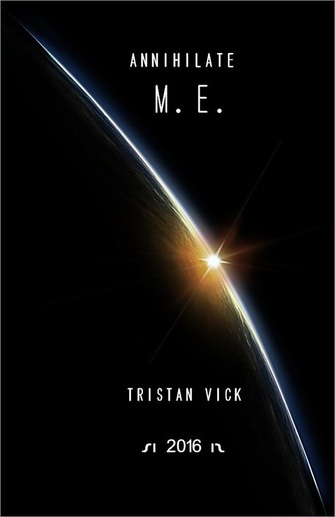 I am drafting a new science fiction novel (tentatively scheduled to be out in 2016). Usually the post apocalyptic stories take place in a far flung future after a cataclysmic event has destroyed most of the world, the economies have collapsed in on themselves, resources have become scarce, and its everyone for themselves. Usually the cause is a nuclear war leading to a radioactive fallout, or else is a mysterious event that acts as a McGuffin just to get the story rolling. Usually there are cannibals and evil warlords. Sometimes vampires. Other times zombies. Every possible future scenario is different. Which is why it makes the post apocalyptic genre such a great sandbox to play in. I thought I'd take a stab at it. Quick Synopsis: A scientist who has cracked the code of time travel, Dr. Eli J. Bannerman, develops a time travel device and sends himself back in time in order to save a dying planet--and consequently his dead wife, Maddy Emmerich. But unlike most time travel stories, where the hero prevails, Dr. Bannerman fails to alter the course of history enough to stop the impending death of the planet's ecosystem. Upon returning to the future, he finds himself in a nightmarish world where a depraved mutant known as the Dark Lord Skaende Shendar Ontheiligen has taken over most of the world. Only a small rebel force, using guerrilla tactics, stands in the way of the Dark Lord's world domination. A rebellion headed by none other than Bannerman's supposedly dead wife (from an alternate timeline), Maddy Emmerich. Bannerman, unable to return to the past, decides to help this world's version of Maddy Emmerich and joins the rebellion. However, the twist is in order to save this future from an evil tyrant, he might have no choice but to kill Maddy Emmerich. 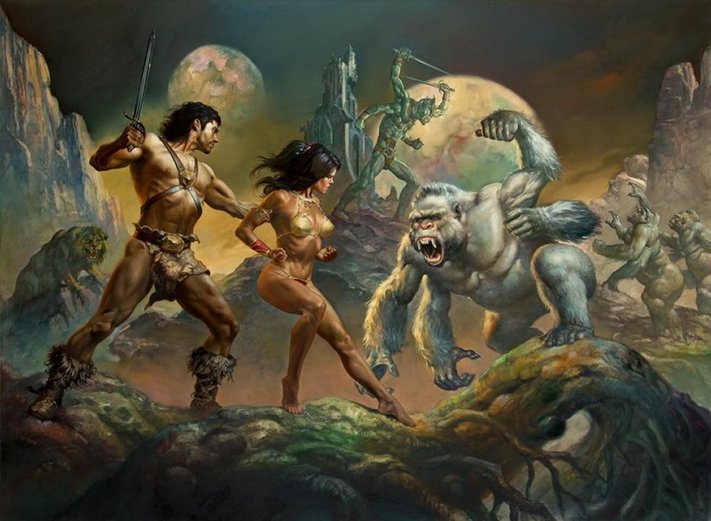 John Carter of Mars (2012) is one of my all time favorite films. If you enjoy all forms of cinema, it should be one of yours too. Let me explain. Little is wrong with the film itself. The story is excellent and it seems that all the negativity regarding the film's reception comes from a handful of bad reviews by commercial fan-boy critics who can't seem to recognize good storytelling/film-making when they see it. I think this was a case of film critics hating on a bunch of unknowns simply because they didn't have anything else to go on. Then the film under-performed and they ALL, like robots, focused on only this one aspect. Nobody, as far as I can tell, gave the overall film a fair review. It was a case of the critics vs. the big budget Indy film, because that's technically what it was (even though Disney financed it). The website Planet IVY has an excellent analysis of why the film tanked at the box office. It's well worth reading as it considers all the factors as to why an otherwise excellent film failed so stupendously at the box office. That said, the bottom line is, the film bombed superbly due to horrendous marketing--as if it was an after thought. It was a promotional disaster. Most films use their box office projection to calculate advertising cost. So most big budget films which cost around 150 to 200 million will spend about half of that advertising the film, in the hopes to draw a big enough crowd to pay back the massive filming expenses. Films also can opt to have sponsors who pay for advertising in the film by funding "scenes" like in Superman: The Man of Steel. I-hops and Seven Elevens abound in MOS, because these companies paid for that entire scene, and the film gets made more cost effectively with product placement. Product placement is harder to do in a film like John Carter, or say, Lord of the Rings. In fact, it's impossible. So studios have to take a gamble in how much appeal the movie will have with the general audience and how much they are going to have to spend on advertising to generate buzz and attract additional viewership. The thing that really killed John Carter dead was that it had no promotional backing from the financing studio and the director tried to micro-manage its promotion. This lead to little to no promotion ahead of time for a film with no-name actors, with little to no draw to the general movie going audiences (scifi and fantasy typically cater to an exclusive demographic; usually young males between 20 and 30 years of age). Early bad-mouthing of the film by company insiders, in part due to the managment fiasco at Disney, created a downward spiral which film critics picked up on, and the screenings came out with lack luster reviews by a handful of artsy-fartsy type critics who were expecting a totally different film from Stanton (although I don't see why). This accumulated in a big backlash of negativity before the film ever opened to the general audience. And with no promotional campaign with stunning looking trailers to counter the negativity surrounding the release of the film, the thing tanked before word of mouth could spread about how amazing the film truly was. A long story short--advertising, smart marketing campaign, and good promotional reels do make a difference in Hollywood box office performance. Something Disney, as a studio, knows all too well. Except for the fact that JCMs came out right as the company was restructuring and had an entirely new team of management who proved too inexperienced to handle the size of the film Stanton was making. They basically just threw money at him and said make it the way you want (which is why it is closer to an Indy film than a blockbuster, even though it was a big budget production. Perhaps more in line with Lucas' Star Wars franchise--which ironically enough--is now owned exclusively by Disney). But none of this diminished the quality of the film itself. Contrary to what you may have heard, John Carter of Mars is an excellent movie. It's high adventure. It's sci-fi perfectly blended with fantasy. It's everything the Star Wars prequels should have been but weren't. JCMs has some of the best CGI characters, if not the very best, ever put on the big screen. The cast was perfectly suited to the film and the acting is solid across the board. As a fan of the Edgar Rice Burroughs John Carter novels, I was pleasantly surprised to see how director Andrew Stanton's vision of the John Carter universe matched up with mine. If you don't already know, Andrew Stanton is the Academy award winning director of Pixar's Finding Nemo and Wall-E CGI animated hits. But the talent doesn't end here. One of the script writers is none other than Pulitzer prize winning author Michael Chabon. He won the Pulitzer for his stand out novel "The Amazing Adventures of Kavalier & Clay." Chabon understands storytelling in more than one medium. He is a great supporter of comics and graphic novels, and has written extensively on the subject matter extensively. He is also a veteran screenplay writer, so he was well suited to the project. On John Carter he had this to say: "I still feel that we made a very good movie. Solid. Entertaining. Breathtaking. If a movie set on Mars with flying ships, sword fighting, red princesses, villainous villains and dashing heroes doesn't sound like your kind of movie, I understand that. But for people who enjoy that sort of thing - I count myself among that group - I thought it was a perfectly serviceable product." Chabon is not wrong. The movie is very good. It's story is solid and entertaining, the visuals are breathtaking, and its high fantasy at its best. Too bad most people will shrug it off as a failure without ever giving it a chance. Some critics have complained that Stanton, being an animation guy, simply didn't have the chops to make a truly successful live-action film. But this isn't true. Other Pixar animation directors have transitioned successfully into live action, as Brad Bird (Incredibles) is evidence of with his block buster hit starring Tom Cruise, Mission Impossible: Ghost Protocol. The difference here, however, is in the fact that Bird had star power drawing in the crowd. He had the popularity of a long running franchise with an established fan-base drawing in a crowd. He had the luxury of a big budget with a fully backed promotional campaign that stretched all the way from Hollywood to Japan. John Carter of Mars had none of these things. But it doesn't make it any less of a film. Besides, it seems a little superficial to me to judge a film on its American box office success alone. That's not a an accurate litmus test for anything. A thousand and one good films come out a year as well as a thousand and one pieces of crap. The point is, John Carter has been unfairly blacklisted by everybody who apparently hasn't seen the film. Although a little late in my review, since I didn't see the film until early this year on Bluray, I thought I would set the record straight. John Carter of Mars is a brilliant film. It has gained an instant spot on my shelf next to my other all time favorite films--and although film taste is subjective--it is undeniable that John Carter is a quality production with some of the best storytelling I've seen put to film. I truly hope Stanton and crew are able to get the rest of the books filmed and made, but it seems, at least in this case, that Disney is in the business of making money (i.e., Avengers). Judging by JCM's poor reception and even poorer box office performance, and the success of other more marketable franchises (i.e., anything Marvel), the remaining stories will not likely ever even get green lit for production. And that's a shame. John Carter fans everywhere may shed a little tear, but at least we have one of the best novel adaptations ever made into a movie, and that is saying something. We will cherish it like a diamond in the rough, because that is precisely what John Carter of Mars is to the fans. |
Tristan VickBy day I am an educator and a cultural ambassador. By night I entertain notions of being a literary master. In reality I am just a family man and ordinary guy who works hard and loves writing just about as much as I love my family. Just about. AVAILABLE NOWNEWSLETTER
|


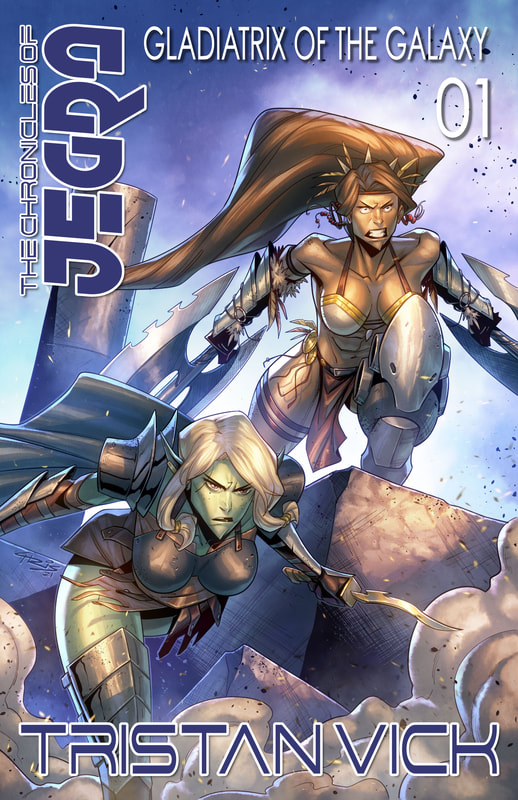
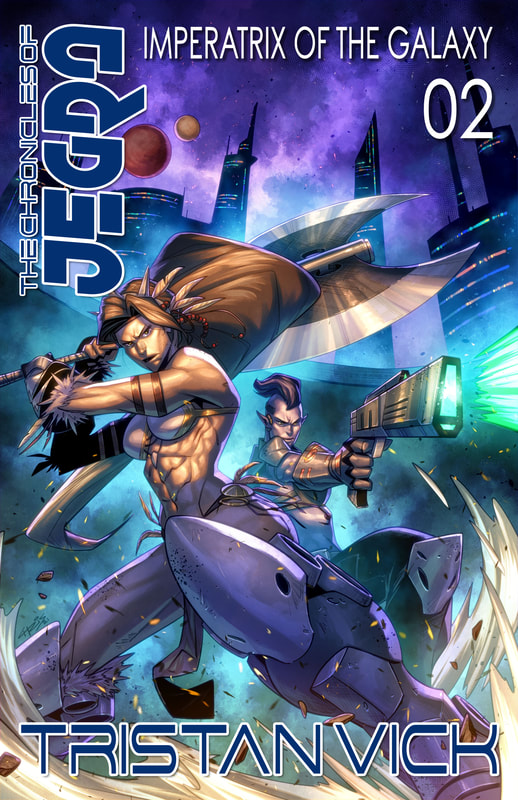
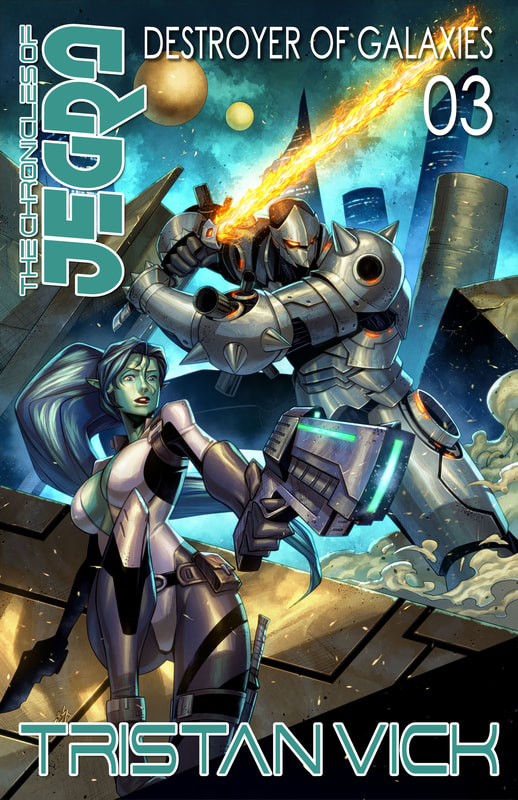
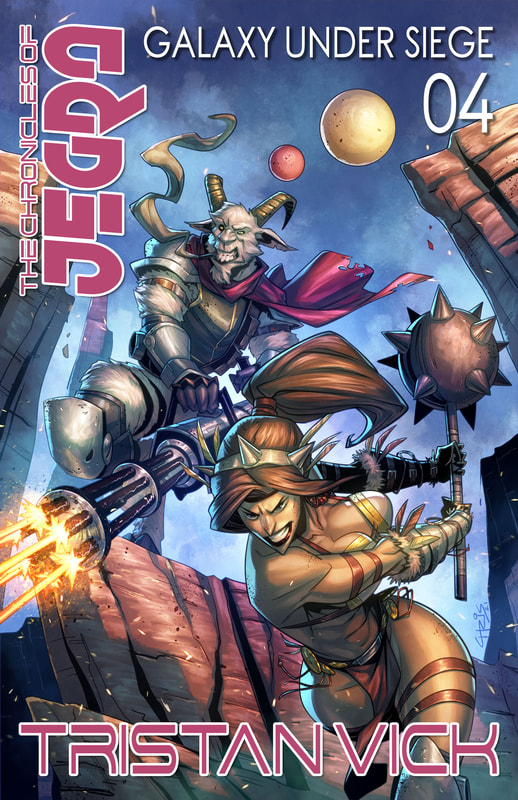
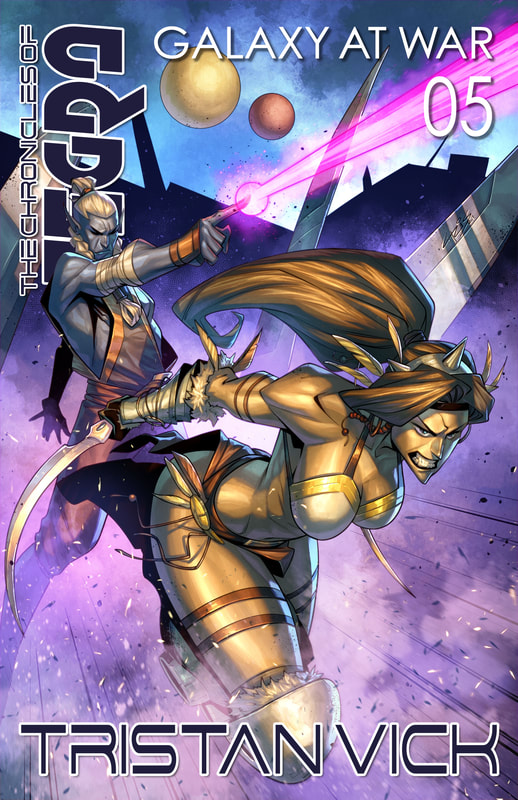
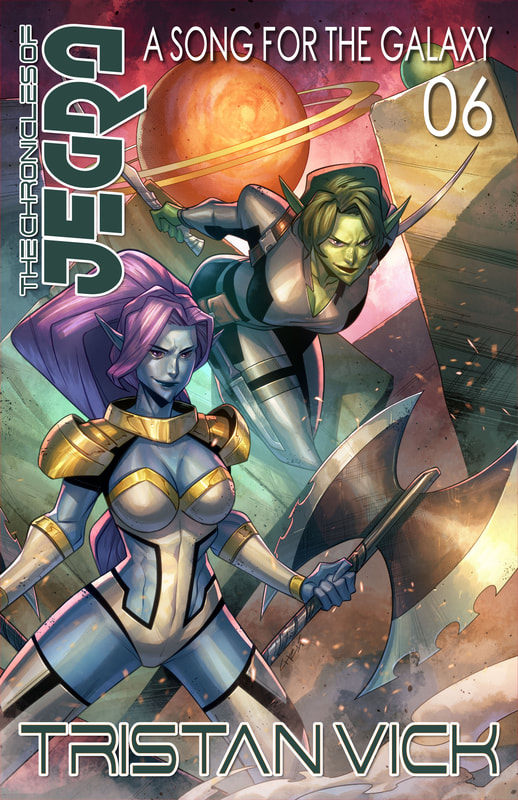

 RSS Feed
RSS Feed

